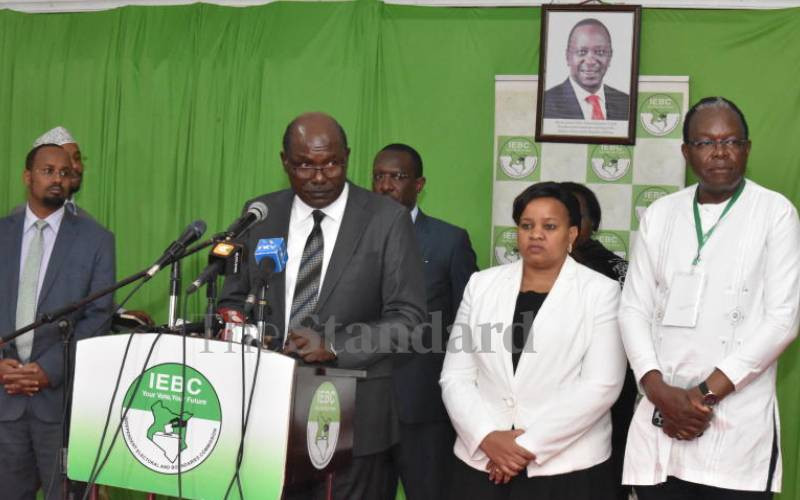×
The Standard e-Paper
Smart Minds Choose Us

Independent Electoral and Boundaries Commission (IEBC) has been sued over its decision not to use the manual register during the August 9 General Election.
A week ago, IEBC announced it would only rely on its digital register to identify the 22.1 million voters but it is being accused of bias and failure to seek comments from the public.